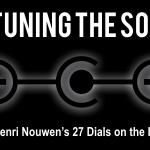“Christianity is mostly a matter of politics—politics defined by the gospel. The call to be part of the gospel is a joyful call to be adopted by an alien people, to join a countercultural phenomenon, a new polis called the church.” Resident Aliens, p.30
When Stanley Hauerwas says, as he often does, that Christianity is a matter of politics, he doesn’t mean American liberal or conservative politics. He’s saying Christianity is not a belief system. It’s way bigger than that. Christianity is a whole new way to be human that requires a complete reordering of the way we organize our lives both personally and communally—or politically. Christianity is a politic.
Christianity, as a politic, pushes us to ask how we should organize (or reorganize) our common life in order to be more faithful to the way of Jesus. It prompts us first to wonder what kind of society the church ought be in order to image God to our world and help guide the world to organize differently. Do we truly embody a genuine alternative to the way of being we find in the culture at large?
Individualism and Unchecked Desire
The biggest problem with how the church has tried to answer those questions is, for Hauerwas, individualism and unchecked desire. Our society is obsessed with personal rights and freedoms, mostly because nobody wants to acknowledge limits to their own desires. Most people see themselves as autonomous individuals, shrink-wrapped and self-determined, ready to chase their own personal version of the good life. The assumption is that society’s role—the role of government—is to assist each of us in meeting our desires, or at least to keep others out of our way. Christians who see the world in those terms have an imagination shaped by liberal democracy and consumerism much more than by the church.
“The primary entity of democracy is the individual, the individual for whom society exists mainly to assist assertions of individuality. Society is formed to supply our needs, no matter the content of those needs. Rather than helping us to judge our needs, to have the right needs which we exercise in right ways, our society becomes a vast supermarket of desire… what we call freedom becomes the tyranny of our own desires.” Resident Aliens, p.32
Hauerwas says that the American idea of a good society ends up being one that can insure that, in the end, everybody gets to be his or her own tyrant.
By contrast, the Christian story says: you are not an individual, you are a person, which implies an intrinsic connection to others. It also suggests that limits are good for us. The word “human” names one who submits to a human community that will inevitably shape and form the person we are becoming. Humans are constituted and determined by our community, that’s what it means to be a person. A Christian is a person who belongs—first and foremost—to the people of God.
The Christian community is supposed to refuse to help us meet our every individualistic desire. Instead, the church is supposed to shape our desires, teaching us to say “yes” to humanizing desires and “no” to dehumanizing ones. The result is the creation of a people who are better together than they would be apart. The word “Christian” names a person who as submitted to the kind of community that refuses to baptize our every desire, and who does so in the name of Christ. Once we have been named a Christian, we should find it hard to be named by anything else—especially names like Republican or Democrat, conservative or liberal.
To organize our common life together as a church in a way that is faithful to Christ is a profoundly political act, on that is much more powerful than the Christian political action linked to conservative or liberal political action. Part of how we recognize a truly Christian politics is that it does not draw its strength from political or economic power. Truly Christian politics draws its strength and influence from our ability to offer the world a true vision of a good life, a genuine alternative way to organize, a new way of being in the world that is better than the one the culture has to offer.
But for this to work, there has to be a “there,” there. There has to be “new creation” in our way of being together. Christian politics is marked by peacemaking, enemy love, forgiveness, grace, hospitality, and unity–pretty much everything Jesus teaches in the Sermon on the Mount. If we organize our common life together around those kinds of things, then we will image God, and Christianity becomes our politics. If we merely baptize American political parties with religious language, then we worship some other god under the banner of American conservatism or liberalism. We might be doing politics, but not Christian politics.
Part of the reason the church keeps getting tripped up is that we have been taught to think our political choices exist on a continuum between left-wing liberalism and right-wing conservatism. But those two camps are really just two sides of the same coin, because both assume the job of the state is to help people pursue their own limitless desires. What’s worse, most American liberals and conservatives seem blind to the fact that society is constantly shaping our desires, largely through mass media and marketing. Businesses don’t spend billions a year on advertising because it doesn’t work. Both left and right wing American politics support the same status quo of radical individualism and the tyranny of individual rights and personal choices. Unchecked, these fuel our virulent consumerism and ravage our environment. Both parties assume their job is to make the world the kind of place where you can have whatever you want without any limits or judgment.
That is a profoundly un-Christian view of reality.
The Real Christian Political Conflict
Christians have a different approach to politics. We believe our job within society is not to bend society to our will. Our job is to season (like salt) society’s understanding of what it means to have right desires in the first place. We do this by embodying Christ in our common life in bold opposition to a culture that usually responds by telling us to go to hell. Hauerwas envisions a completely different continuum for Christian politics. He would put liberals, conservatives, and political parties on the same side of the continuum, pursuing the same goal of individualism and the tyranny of distorted desire. On the other side of the continuum he would place the church’s prophetic witness to the State: a way of organizing our common life that constitutes a fundamental challenge to the individualism, consumerism, and nationalism of our culture.
The church’s politics involves embodying a better way to organize—a better politics—that flows from the cultivation of right desires, and the habits of obedience that transform human character. Through a long slow communal obedience to the way of Christ, we experience the deep ontological repair that results in human flourishing for all the world to see. The way Christians organize our common life together is supposed to call into question the dominant culture, not baptize it with religious language.
The real Christian political conflict isn’t between left and right, it’s between politics as usual and the (in our current climate, almost non-existent) prophetic Christian witness to the State.
Too much of what passes for Christian political engagement is carried out by people who have never undergone serious Christian formation. Most Christians in America are more American than Christian. Hauerwas often offers as proof, the fact that most of them teach their children they have a choice about whether they wish to be called Christians, but not about whether they wish to be called Americans. National identity goes all the way down, even in the church. These are people who cling to their Bible, but don’t ever even read it, much less follow its teaching. Without serious formation among a peculiar people, Americans end up simply baptizing their own brand of party politics with religious language.
As a result, most American Churches end up inoculating their members with just enough Jesus to make them immune to the real thing. Her members default to a political party with a totally inured conscience. That’s where we are. I mean, nobody who begins with “Greater love has no one than the one who lays down their life for a friend,” could ever end up with the American brand of radical individualism. Nobody who begins with “Consider the lilies…” could ever end up with present day consumer capitalism. Nobody who has taken seriously the story of the Good Samaritan could end up with nationalism.
The church is meant to be the one community who takes seriously God’s view of what it means to be human and to live faithfully. Only this kind of commitment can produce a truly Christian politics, because, as Hauerwas says, “The church gives us interpretive skills, a truthful understanding whereby we first see the world for what it is.” Resident Aliens, 38
The Church in America will never get anywhere, politically, by leveraging the power of political parties, and especially not by getting in bed with Donald Trump in the name of political power. We will only make political progress when we embody something real, something different, something compelling and peaceful. Only then will we be able to discern which of the current political players in our society we can work with, and which we must resist. Once we have learned to see the world truly–not through the lens of a political party–we will know how to engage in the American political process, or any other for that matter. But, until the church begins to commit ourselves to the deep ontological repair of Christian formation, and to changing the way we live our lives so as to resist the idolatry of individualism, consumerism, and nationalism, we will continue to flounder and fail to bear witness to the better way.
It takes a lot of courage to claim Jesus is our politics. He has taught us how to live. I’m praying for courage these days.














